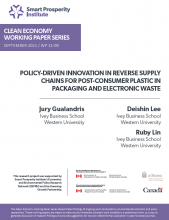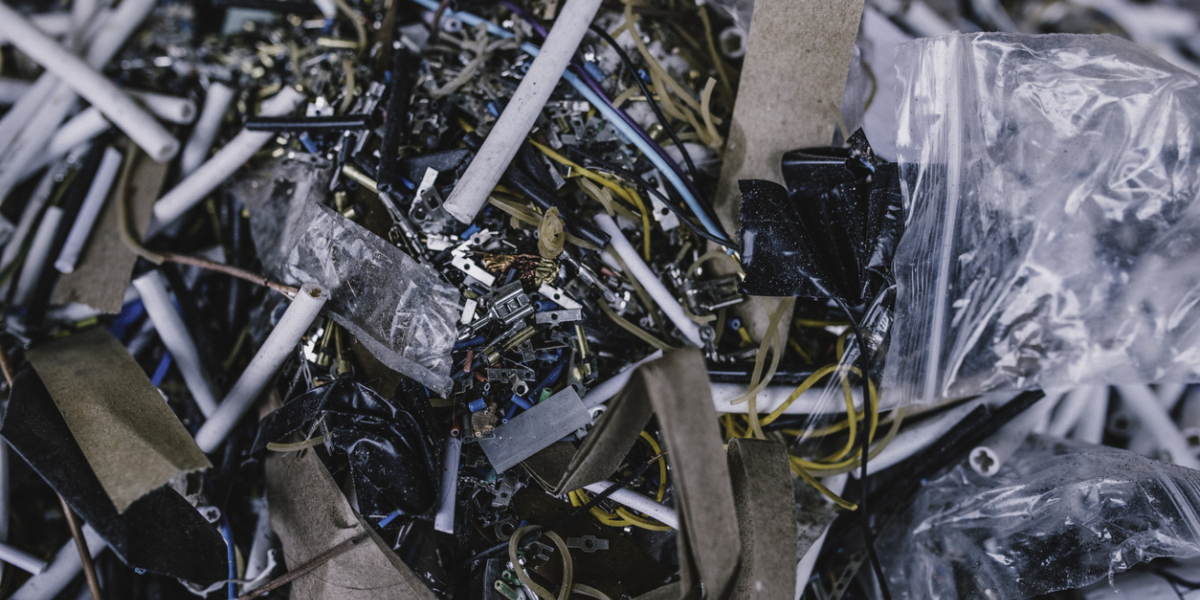By Jury Gualandris, Deishin Lee and Ruby Lin
This technical note examines the structure and functioning of the reverse supply chain for plastic in Ontario (Canada) and how Extended Producer Responsibility (EPR) influences this system. Specifically, we will describe the intertwined processes composing the reverse supply chain and reveal the main operational and economic challenges affecting each process, focusing on consumer products packaging and electronic waste (e-waste). An understanding of the current infrastructure for and obstacles to managing end-of-life plastic products and materials can inform important developments in managerial practice as well as policy making. The Ontario government is working towards implementing a new EPR framework to encourage innovation in reverse supply chains; however, any new policy must address several considerations to stimulate the development of a capable system.
The Clean Economy Working Paper Series disseminates findings of ongoing environmental and clean economy work conducted by researchers from a range of disciplines. These working papers are meant to make results of relevant scholarly work available in a preliminary form. Although these papers have not undergone a peer-review process, they meet general standards of scholarly excellence. The views expressed in these working papers are those of the authors and do not necessarily reflect the opinions of Smart Prosperity Institute.



